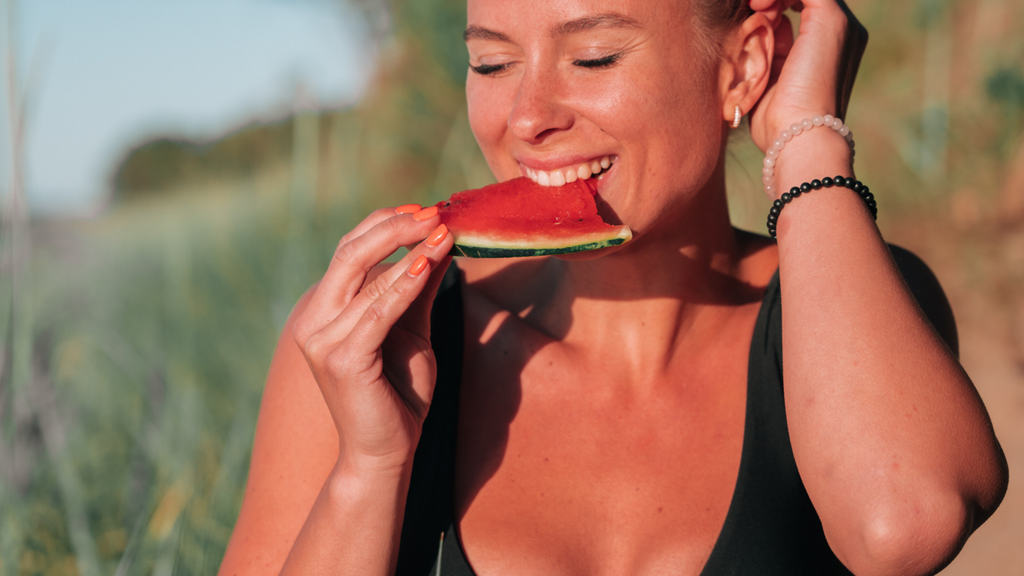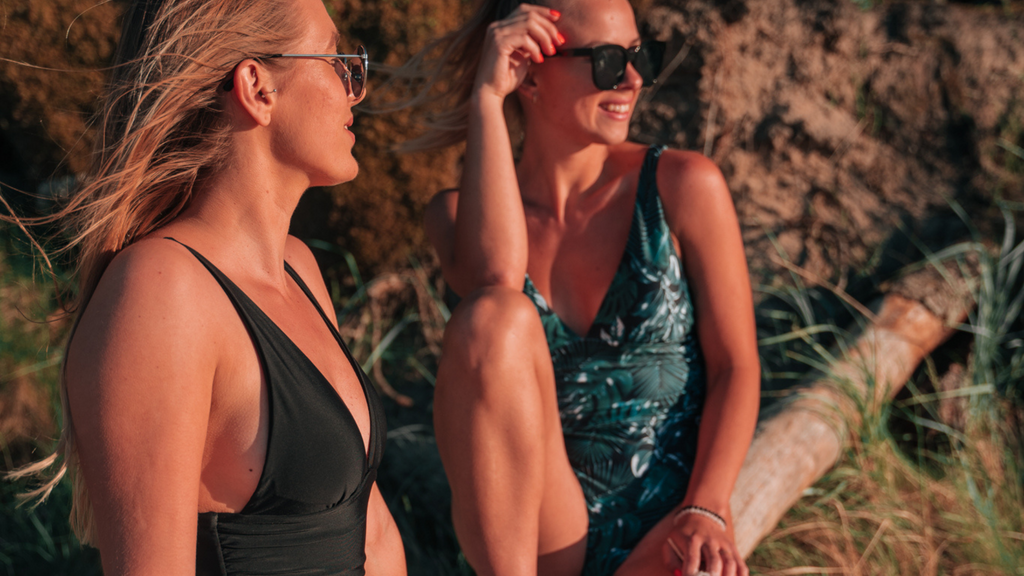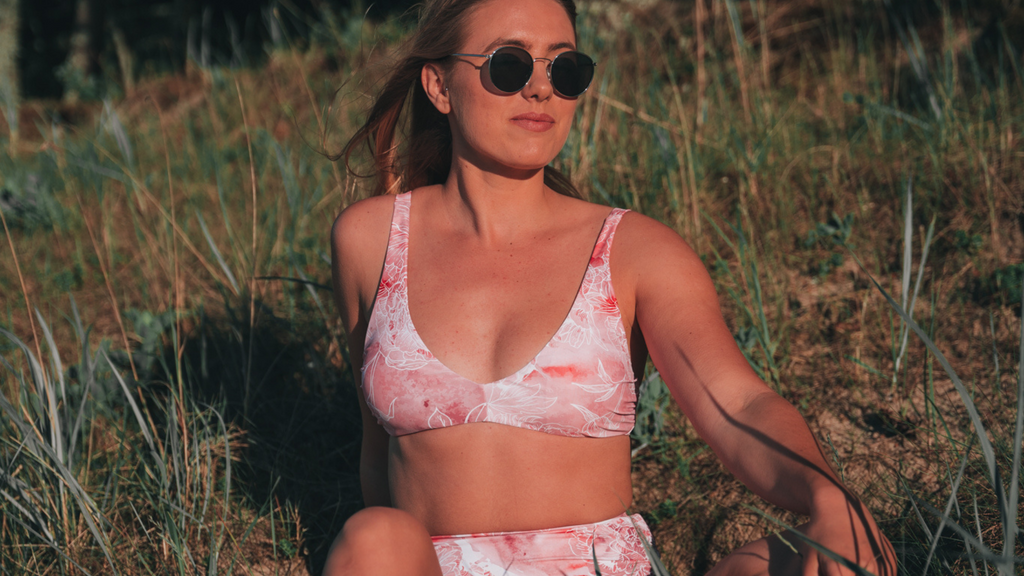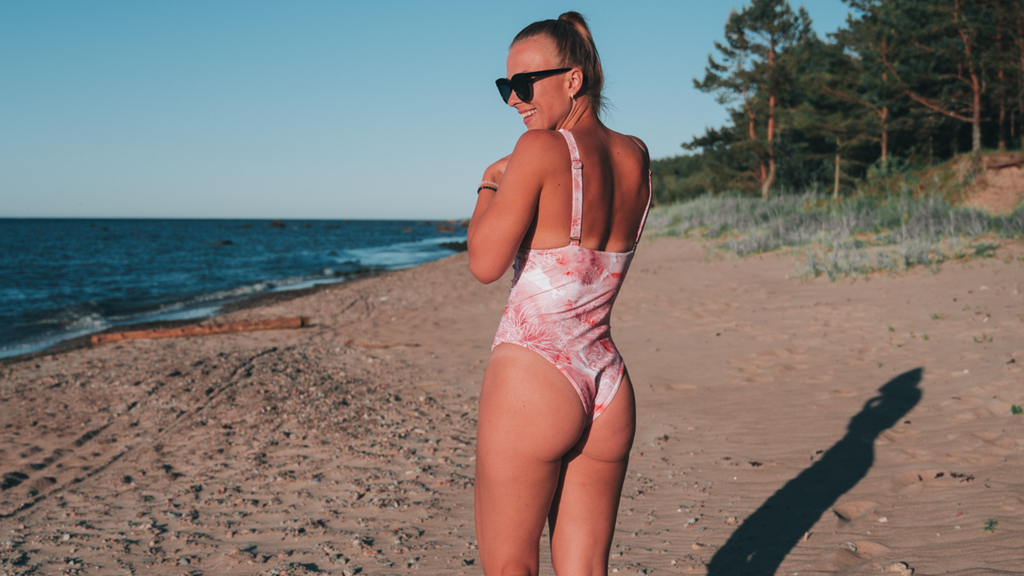Sunscreen, sun lotion and SPF. We've all heard about it. But why exactly should you wear it and when? Here are a few Q&As about SPF to get you ready for summer!
The sun feels great on your skin – doesn't it? Especially after many cold and dark winter months. But when the sun finally arrives and is at its peak, you should be ready with your sunscreen. Why? There are many reasons, and you've probably heard a few of them before. First of all, it can protect you from developing skin cancer. Secondly, it can help prevent the sun’s rays from causing photoaging*. Last but not least: If it is important for you to get a tan, you can still achieve that, even with sun lotion.
With this in mind, go to your cabinet and find out if you have some sunscreen. It's also important to check the sun lotions expiring date, because the sunscreen's effectiveness may decline with time. If you can't find an expiration date, write on the bottle with a marker so you'll know when you purchased it.
> Take a look at our swimwear collection
Keep in mind that all sunscreens should be stored at room temperature over time and try to avoid exposing the container to excessive heat or direct sun. Hot tip: Place sunscreen containers in the shade or wrap them in a towel when you're at the beach.
So, what're the best tips to protect your skin from sun damage?
- Always wear sun lotion – all day, every day.
- Avoid being outside during peak sun. This is when the sun is at its highest. This is normally between 10 a.m. and 4 p.m.
- Find some shade and never tan for long periods of time.
- Wear a hat or caps (we got a few of them – take a look!).
Now, I hope you're ready for the beach and that you're tanning safely. If you still got some (sun) questions, here are a few of the most frequently questions answered:
Do you need to wear sunscreen when it is raining or cloudy?
There is a myth that says that you don't need sun protection when it's raining or cloudy, but that's not true. Once you step outside, there will be UV rays. The rays go through both rain and clouds, so you’ll need protection against the harmful UVA and UVB rays penetrating your skin.
Can you get a sunburn during winter?
Oh yes, you can. You can even get snow-blinded (sunburned eyes). The UV rays get reflected in the white snow, making you extra exposed. It's therefore extra important to wear sunscreen and sunglasses during longer periods outside wintertime.
Is dark skin naturally resistant to sun damage?
Even though dark skin provides greater natural protection from the sun's harmful rays than light skin, no one is immune to sun damage. That’s why sun lotion is something everyone should wear – no matter the skin tone.
What is UV radiation?
Sunlight contains ultraviolet radiation, also called UV, which consists of different types of rays. The types of UV radiation you’re probably most familiar with, which are letters often found on sunscreen, are UVA and UVB rays. These rays can affect your skin in different ways.
> Need a bikini? Take a look at our swimwear
What are UVA and UVB, and what’s the difference?
UV light has shorter wavelengths than visible light on the electromagnetic spectrum, so your eyes can't see it, but your skin can. With a longer wavelength, ultraviolet A (UVA) is linked to skin ageing. Skin burning is linked to ultraviolet B (UVB), which has a shorter wavelength.
What does SPF mean?
SPF stands for Sun Protection Factor, often followed by a number, e.g. “30”. The number indicates how well the sunscreen protects skin against sunburn. Let’s say it takes 300 seconds for the skin to burn with sunscreen, and 10 seconds to burn without it. 300 is divided by 10, which is 30. The SPF is 30. The short version: It’s the factor on your sunscreen or sun lotion.
What is the difference between SPF 30 and SPF 50?
As stated above, the number behind SPF indicates how well the sunscreen protects your skin against sunburn. Unfortunately, no sunscreen can block 100% of UV rays, but we do know that SPF 15 blocks 93 % of UVB rays, SPF 30 blocks 97 % of UVB rays, and SPF 50 blocks 98 % of UVB rays. As a result, the difference between 30 and 50 is around 1%.

Can sun damage be reversed?
UV rays can modify your DNA, and this form of sun damage cannot be reversed. While you can treat the cosmetic effects of sun damage, you can't minimize or repair the damaged DNA. Once the sun exposure causes DNA mutation, there is no way to reverse it.
So, remember to wear sun lotion and to reapply every 3 or 4 hours after every swim. We wish you a happy and skin safe summer!
*Photoaging is premature skin ageing caused by overexposure to the sun's rays.







































